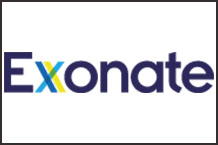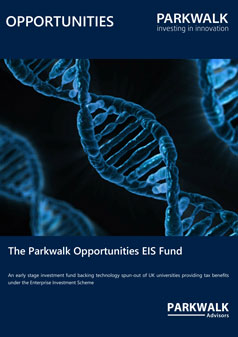Dear ,
Exonate’s founders have discovered a novel approach to modulating new vessel growth. By controlling the balance of two contrasting forms of a protein called Vascular Endothelial Growth Factor (VEGF), they have demonstrated that they could not only treat models of angiogenic disease (eg Cancer and wet Age–related Macular Degeneration (wAMD) but also protect kidney and nerve cells while simultaneously producing a pain killing effect.
The early research and development was undertaken in the Bristol MVRL laboratories of Professors David Bates and Steve Harper and continues in their laboratories in Bristol and Nottingham Universities and also in the laboratory of Associate Professor Jonathan Morris in the University of New South Wales in Sydney.
Exonate is now seeking to develop safer, more effective, therapies for the treatment of cancer and eye disease. The same approach will also allow the development of treatments for severe pain, and also the eye, nerve and kidney complications that occur in patients with diabetes. The Company has a pipeline of proprietary compounds that will be developed to address all of these therapeutic areas.
The Technology
The lead programme is in ophthalmology, addressing wAMD. The work is directed towards developing a topical eye drop to treat wAMD. Current treatments require monthly injections directly into the eye which is not only very expensive but also unpleasant for the patient. The Company has developed expertise in predicting the physio-chemical properties of its compounds that will facilitate permeability through to the back of the eye in an ex vivo eye model. This has led to rational design of compounds with increasing potency and permeability.
Early business development activities have attracted the attention of the pharmaceutical industry and the company has entered into an MTA with a large pharma to repeat key experiments.
IP
Exonate has a strong IP position with patents having been filed by its founders since 2001. These patents cover the core of VEGF splicing modulation which is granted and a composition of matter patents on potential drug candidates.
The Market Opportunity
AMD afflicts an estimated 30 million to 50 million people worldwide and is the leading cause of severe vision loss in Western societies. AMD occurs in two forms: dry and wet. Wet AMD accounts for only about 10% of all cases but 90% of the blindness associated with AMD worldwide. Globally, wAMD affects approximately 1.3 per cent of people over 50 years old with a global incidence of approximately 1.5 million. This means that there are approximately 600,000 new diagnoses every year. The prevalence in the UK is 200,000 people. The incidence of new diagnosis in the UK is 40,000 people each year. These patients, if untreated, are likely to lose vision in the affected eye within 24 months of onset. (Macular Disease Society).
Wet AMD can be treated with anti-VEGF therapy, involving monthly intra-ocular injections of large molecules (proteins) and attendance at the local eye hospital. Current therapies can hold the progression of the disease in approximately 90% of patients, but only 30-35% gain an improvement in visual acuity.
Exonate’s solution would provide the first topical treatment, eye drops. This would provide benefits to patients as a non-invasive, self-administered therapy with a low side effect profile.
The market is large with current anti-VEGF therapies for wAMD generating annual global sales in excess of $4.7 billion.
Exonate has conducted interviews with leading ophthalmologists within the UK to investigate their attitude towards an eye drop for the treatment of wet AMD. Initial responses are overwhelmingly positive. Both physicians and patients dislike intra ocular injections and so the market for topical eye drop administration is compelling.
The Team
Sunil Shah, Chairman, is a serial entrepreneur, who has co-founded two companies and exited in the information technology and life sciences sector.
Dr Catherine Beech MBChB OBE, Chief Executive Officer, is a specialist investor in early stage life science companies having served on the board of many early stage companies taking them through to profitable exits. She was awarded an OBE in the Queen’s Birthday Honour's List in June 2008 for services to innovation and technology.
Professor David Bates, Chief Scientific Officer, jointly discovered VEGF-A165b and has published almost one half of the total publications on VEGF-A165b in the scientific literature. He is the lead inventor of the patents on regulation of splicing and therapeutic use of this mechanism and 9 other patents including composition of matter patents on splicing regulatory molecules (SPHINXes) that describe VEGF165b as a therapeutic.
Christopher O’Connor, Finance Officer, is a Chartered Accountant with some 20 years’ experience. He has been involved in funding events with Cambridge Broadband Networks where he was CFO for 6 years, at Psytechnics where he was CFO for 5 years, and Eagle Genomics.
The Investment Case
Prior to this round, the Company had successfully raised £1.3 million from rounds including the University of Nottingham, Fusion IP Group and several angels. In addition, it had achieved a Wellcome Trust Seeding Drug Discovery award of ~£5million to fund the wet AMD programme. This latest funding round provides the company with sufficient capital to advance the growth of the team and move to the next stage of commercial development.
Although drug discovery often involves long time-lines and binary risk events, we believe the Company has developed strategies to mitigate these and offer the Fund an attractive investment opportunity.


